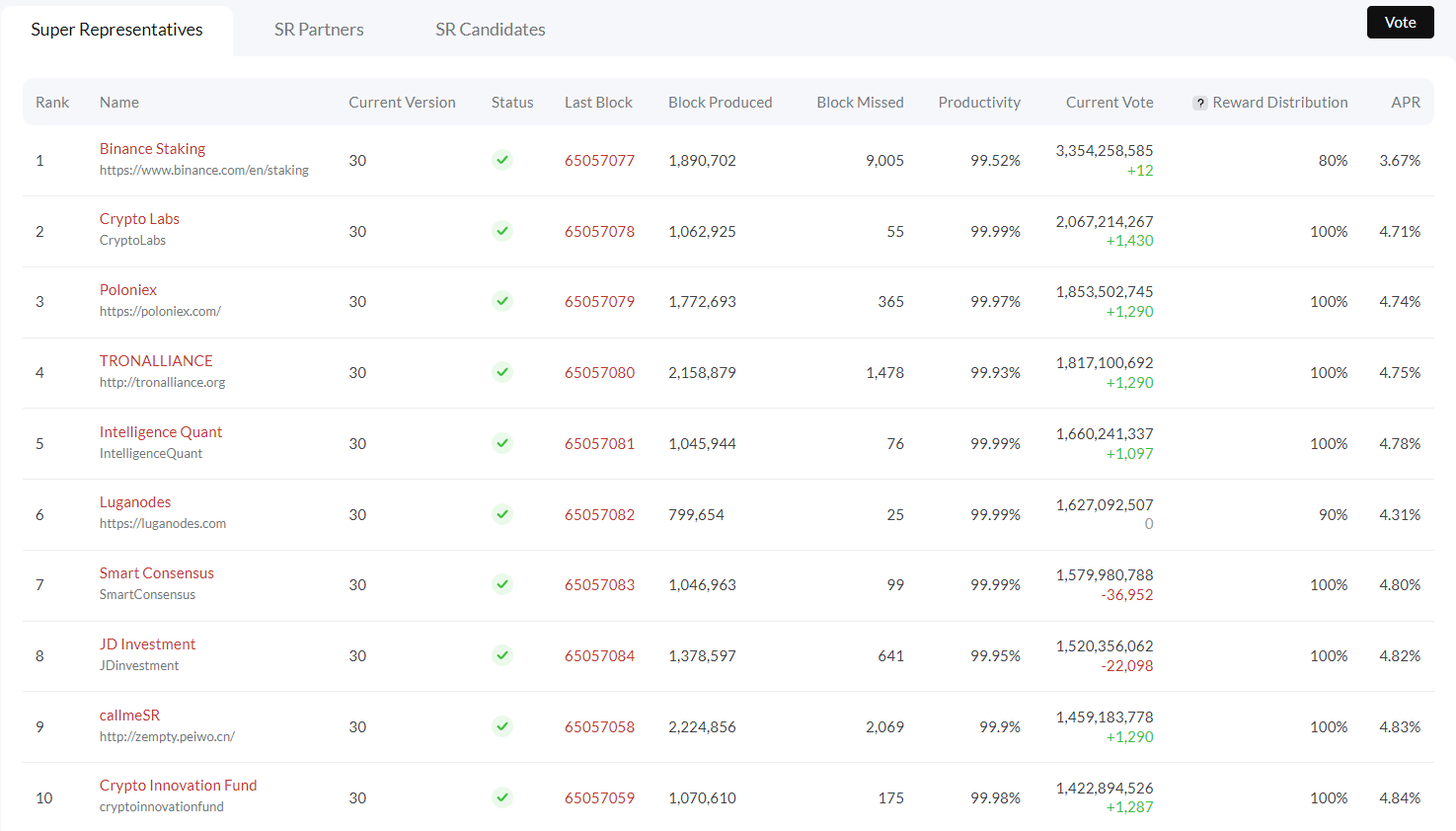TRON Network Super Representatives: Understanding the Governance Structure
TRON Network is a prominent blockchain platform operating under the Delegated Proof of Stake (DPoS) consensus model. Within this framework, there are three key groups that play pivotal roles in maintaining the network’s security and decentralization: Super Representatives (SRs), SR Partners, and SR Candidates. Together, they form the backbone of TRON's governance.
What Are Super Representatives, SR Partners, and SR Candidates?
- Super Representatives (SRs): These are the 27 elected nodes responsible for generating blocks and verifying transactions on the TRON blockchain. They bear the largest share of the workload, ensuring the network’s security and efficiency. SRs also receive the most significant rewards for their contributions.
- SR Partners: These nodes rank just below the top 27 and act as backup nodes, maintaining the network's stability and being prepared to step in if a Super Representative drops out of the top tier.
- SR Candidates: These are nodes that have entered the election process but haven’t yet garnered enough votes to be ranked as SRs or SR Partners. Although not in the forefront, they can gradually gain votes over time to improve their standing.
Rewards SRs, SR Partners, and SR Candidates:
The rewards in TRON’s DPoS system vary depending on the participant’s role:
- Super Representatives (SRs): SRs that make it into the top 27 are rewarded 16 TRX for each block they successfully generate. Since blocks are produced every 3 seconds, SRs receive a steady income. A single SR can earn about 460,800 TRX daily, potentially amounting to more than 13 million TRX per month, depending on network activity.
- SR Partners: Though not in the top 27, SR Partners still earn passive rewards based on the votes they receive. Their earnings are significantly lower than those of SRs. For example, SR Partners can receive approximately 115,200 TRX per day, which equates to 2 TRX for every 100,000 votes within a 24-hour period. These rewards fluctuate with voting outcomes and the overall network engagement.
- SR Candidates: While SR Candidates may receive small rewards based on votes and activity, their earnings are minimal compared to SRs and SR Partners.
How Often Do Elections Happen?
Voting in the TRON Network is a continuous, dynamic process. Any TRX holder can vote for their preferred SRs, SR Partners, or Candidates. Re-elections occur automatically and constantly, meaning that nodes can shift positions frequently depending on user votes.
How Does Voting Work?
- Gaining voting power: To cast votes, users must freeze their TRX, which grants them energy or bandwidth. Freezing TRX for energy allows users to participate in governance by voting for SRs, SR Partners, or SR Candidates. Every 1 frozen TRX equates to 1 vote.
- The voting process: Voters can support multiple candidates at once, distributing their votes as they see fit. They are also free to modify their votes at any time, impacting the Super Representatives rankings.
- Continuous voting: The voting process is perpetual, and rankings are recalculated daily. Based on these results, nodes can move up or down in the rankings, changing their status between SR Candidates, SR Partners, or Super Representatives.
When Are Rewards Distributed?
Super Representatives receive rewards for each block generated—this happens every 3 seconds. These block rewards are automatically distributed to the elected SRs.
SR Partners / SR Candidates, receive rewards based on votes every 6 hours. The amount they earn depends on the total votes cast during this period.
Community Support: A Key to Success
Many candidates attract voters by offering incentives such as rewards or dividends, motivating users to cast their votes in their favor. Therefore, successful Super Representatives must not only demonstrate technical proficiency but also foster strong connections with the TRON community, building a solid reputation that secures ongoing backing.

